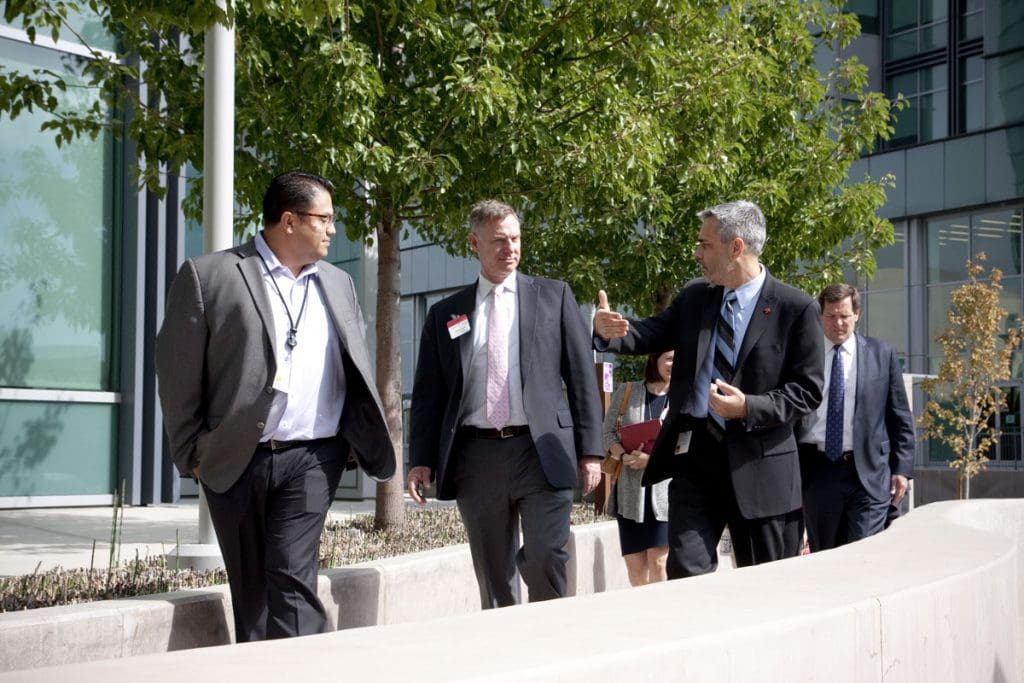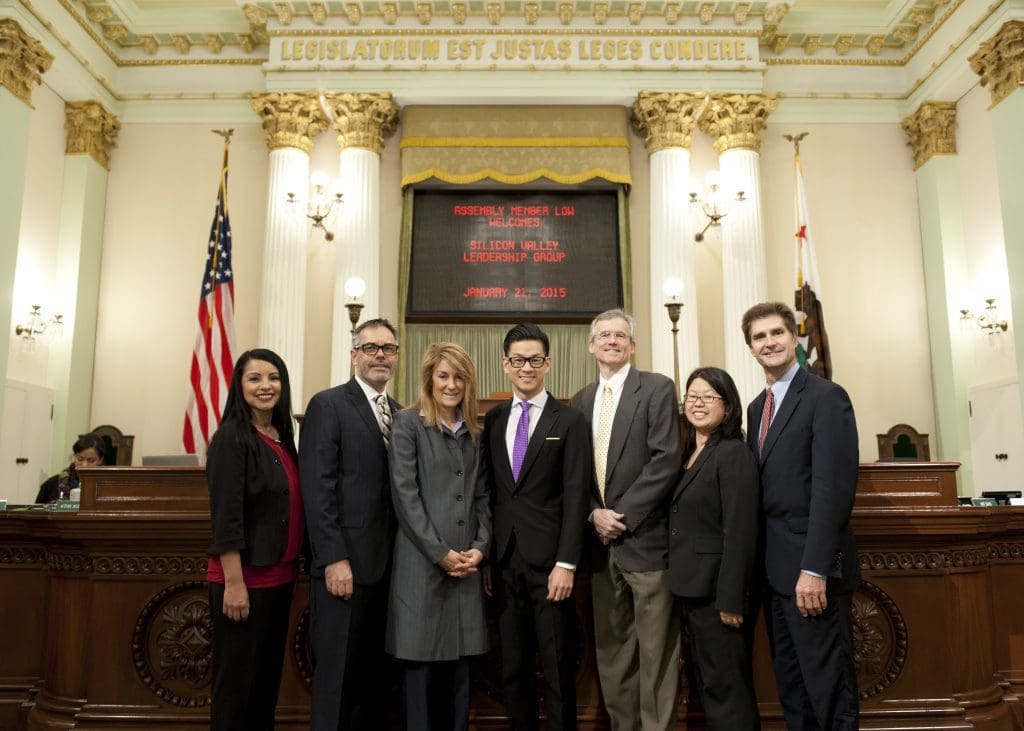Why Brocade’s Senior Director of Corporate Affairs Came to PGS
When making decisions about graduate school, a mentor had this sage advice, “If you’re going to spend tens of thousands of dollars and consume two years—or more, as it would happen—of your life with time away from your family, wouldn’t you want to at least learn something you crave?”
I’m grateful that I listened.
Academically, I was a late bloomer. I earned my undergraduate degree in 2008 at age 43 from the University of San Francisco (USF) after working my way up to become senior director of human resources at Wyse Technology. But through USF, I came to learn the value of education and enrichment, and I knew that I wasn’t finished. I knew that I wanted to earn a master’s degree. Problem was I didn’t know in what and from where?
Deciding on the “What”
After a 10-year background in human resources, earning a Bachelor’s Degree in Organizational Behavior and Leadership had been logical. The curriculum was a perfect extension of my work experience, and—by design—that experience allowed me to be an active participant in class discussions on topics from communication, change management, corporate culture, and much more. It was the right degree at the right time.
However, in the time that followed the completion of my undergrad, my experiences in trying to demonstrate strategic value to my corporation also shed light on a new opportunity. If I wanted my corporate peers to recognize my contributions as useful to business outcomes, I would need to develop my finance and strategy acumen. I needed a deeper understanding of comprehensive business principles. It was clear that in order to grow professionally—up and to the right, as they say—I needed to earn an MBA. More than that, if I wanted my C-suite executives to respect my corporate responsibility recommendations as essential to business growth, I would need to expand my sustainability resources. I needed to earn an MBA that focused on the triple bottom line.
Debating the “Where”
While attending a networking event on corporate citizenship, I heard about “this small private college out of The Presidio.” I was already debating between St. Mary’s College and Santa Clara University. From my USF experience, I had great admiration for the Jesuit principles and both schools incorporate community and ethics into their curriculum. Both programs would also allow me to balance my academics with my need to work full-time. Still, I added Presidio Graduate School to my list of considerations. After attending an information session, visiting classes, and talking with trusted mentors, my debate was over. I applied for admission to PGS and became a student—again—in the fall of 2010.

Benefiting from the “What” and “Where”
As my fellow Presidians can attest, the rigors of the program are high—and should be. For me, it was three years of study that involved 35 residencies, four experiential projects, six teams, countless papers, on-line learning sessions and class presentations, and one awesome Capstone project. But in many ways those are the transactional outcomes. What happened to me and has since manifested in my current work is transformational.
Personally, I am beyond proud of the fact that I completed the program itself. To be among the 9% of the US population with a master’s degree is a feat in itself. I am an example for my sons, nieces, nephews, and others, that setting goals and achieving them is worthwhile. I am a better citizen and steward of our limited resources—I act today as if tomorrow matters.
Professionally, I am an informed systems-thinker, who is recognized as a value add. I have the confidence and the ability to draw upon my PGS-earned resources to contribute to conversations and deliberations. My experience at PGS refined my business knowledge and acumen, enabling me to improve my work within my organization and with external partners. I am confident that invitations to speak about corporate responsibility and my growth in my role at Brocade are a result of my time at PGS.
As Senior Director, Corporate Affairs at Brocade, I’m responsible for driving the Company’s comprehensive corporate responsibility platform. Over the years, I’ve pulled out my ‘PGS Tool-box’ a number of times to deliver results:
• When trying to think creatively about sharing information with a large group, I dug deep into Effective Management, Communication and Action lessons—asking myself, “What would Nils Moe and Carl Schneebeck do?”—and created an interactive game instead of a PowerPoint presentation.
• I use concepts from Managerial Marketing on a regular basis, channeling Professor Rob Coombs and using the 5-Ps as I strive to increase internal and external awareness about the company’s efforts, accomplishments, and lessons learned.
• Insights from Leadership for Sustainable Management are handy too when advocating on Capitol Hill; when meeting with congressional leaders, I wonder, “how would Professor Cynthia Scott diagnose these 5 Dynamics?”
Countless times I have harkened backed to these classes and others, leading me to the conclusion that, in me, PGS has served its mission to “educate and inspire a new generation of leaders to transform business and public policy.”
For that, I’m grateful.


